Safety alert: More than 100 cops on sick leave as officers work 18-hour shifts
Police on sick leave have forced exhausted senior officers to work 18 hour shifts with the Gold Coast’s Covid contact directives being slammed as “ridiculous”.
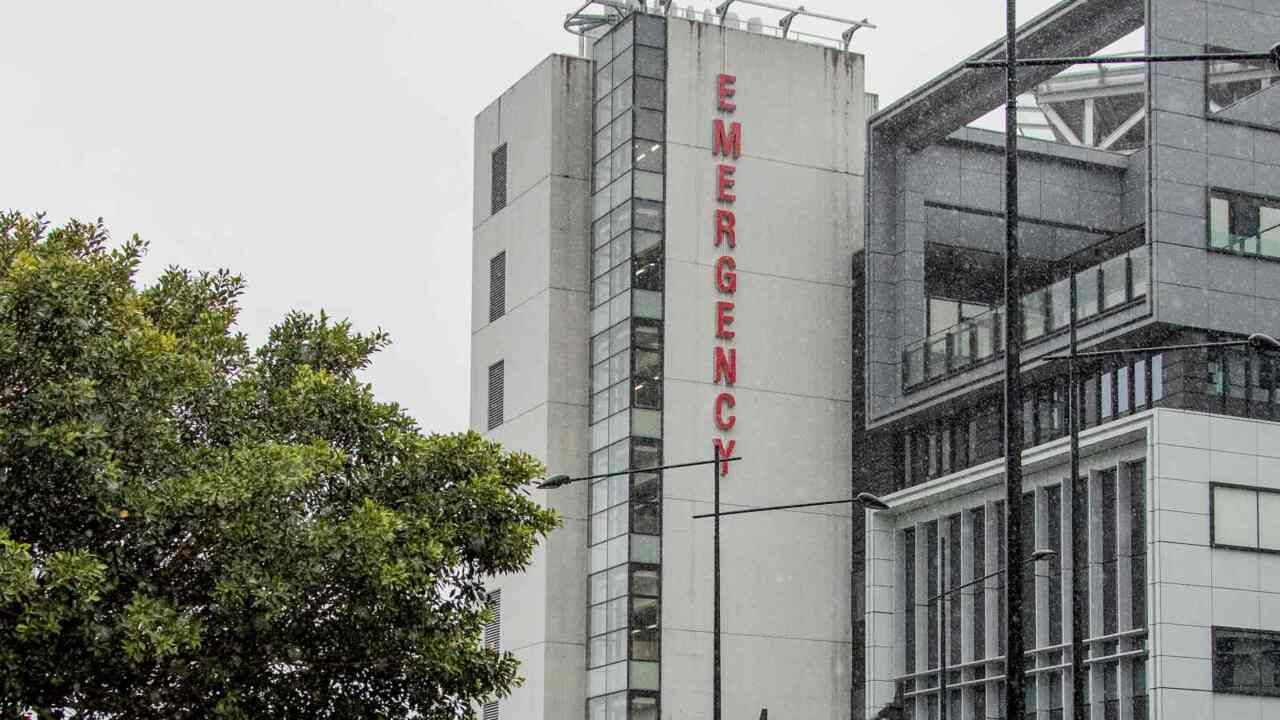
Gold Coast
Don't miss out on the headlines from Gold Coast. Followed categories will be added to My News.
MORE than 100 police are on sick leave, forcing exhausted seniors on the road for 18 hour shifts – with untrained or civilian staffers in key roles sparking work safety concerns.
Police sources say the Gold Coast is being given “ridiculous” Covid contact directives like not staying in a car or office for more than four hours with suspects or witnesses for fear they might need to isolate later.
But the Queensland Police Service strongly rejects there has been a directive and argues there are no major staffing issues, as 100 officers return to the beat from border duties.
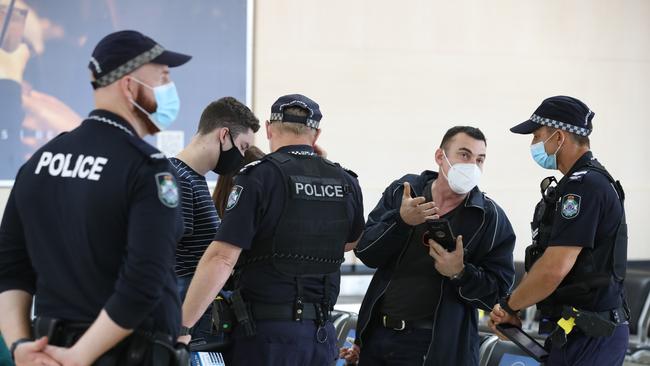
A Bulletin special investigation revealing that border, hotel and airport duties were decimating the ranks led the Premier Annastacia Palaszczuk on Thursday to announce the lifting of barricades earlier — from 1am on Saturday.
The Premier says officers can “continue normal operational duties on the frontline as they are needed as we face this Omicron wave”.
But the Bulletin can reveal numbers of officers on sick leave has almost doubled in more than a week, increasing from 59 to more than 100 on Friday leading to “fragmented command orders”.
“Cops are being told not to be in a police car more than four hours with someone else or they’ll be a close contact. They are to get out as much as they can to reset the clock,” a source said.
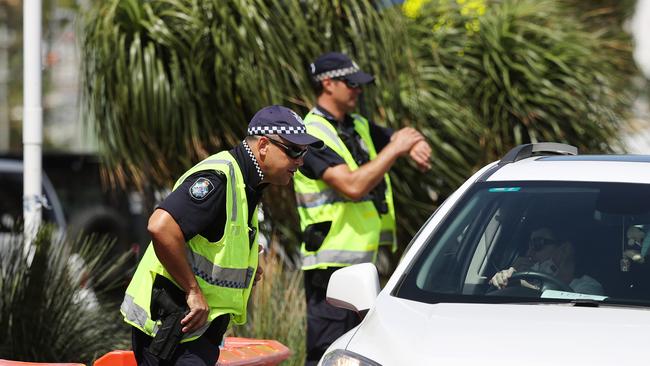
An experienced emergency services source said: “The big problem is keeping people at work. A domestic violence case can take a whole shift. You have to take statements from the victim and witnesses.
“Do you put a definitive time on the interview. Do you take a Covid break.”
QPS sources say staffing levels at some Coast stations are “very low and a safety risk” and civilians continue to fill roles at hot spots like the Southport Watchhouse.
“The levels at Southport Watchhouse are so low again they need to pay officers from other stations overtime just so it has staff. This is a risk as they do not have any orientation and are not trained in watch-house procedures,” a source said.
A QPS spokeswoman said while staffing figures “will fluctuate from time to time, the QPS has sufficient staff and resources”.
“As of 1am Saturday approximately 100 officers will return to core business duties in the Gold Coast District, following the culmination of QPS border operations.
The spokeswoman said the district had the “discretion and flexibility to move resources around as needed” and advised the Southport watch house remained operational.
Senior officers working on the road and attending major incidents also face burnout.
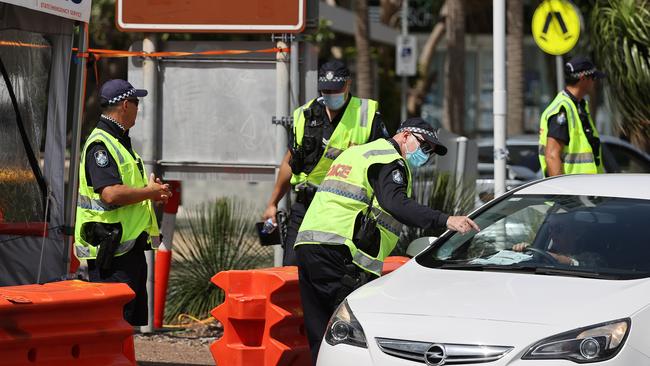
“They don’t have any staff so they are paying them nine hours overtime after already working nine hours. This is a massive risk as they are driving around for 18 hours straight, are fatigued and can’t make critical operational decisions when they attend a serious incident,” a source said.
“Management are aware of serious breaches of fatigue however turn a blind eye.”
A QPS spokeswoman said: “As it is with most other workplaces across the globe, working ‘overtime’ is a routine part of policing when required.”
After the Premier’s border announcement, Police Commissioner Katarina Carroll welcomed the change, thanking officers for working so hard since March 2020 on check points.
“This change from 1am Saturday will enable us to re-prioritise, get back to business-as-usual and make sure we now prepare for the peak over the coming weeks.”
Border policing has involved 3.3 million online border pass declarations and 3.68 million vehicles checked.
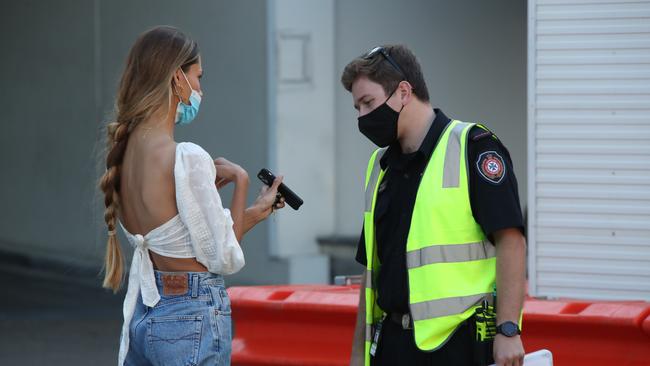
Police turned around 35,902 vehicles and directed 20,247 people to quarantine.
Officers met 29,336 domestic flights, checked 1.8 million passengers and refused 4,452 people entry domestically and directed 64,466 passengers into quarantine from domestic flights. They checked 4,112 international flights and met 117,182 overseas passengers.
‘There isn’t enough of us to keep you safe’
January 13, 2022
“There simply isn’t enough police left to keep the community safe.”
This is the stunning response from concerned officers on the beat, as a Bulletin special investigation reveals the city’s emergency services are collapsing on the Covid-ravaged Gold Coast.
At least 80 officers, including many in key Covid-19 hot spots like Surfers Paradise and Southport, are on sick leave.
At smaller stations, up to 20 staffers are off work.
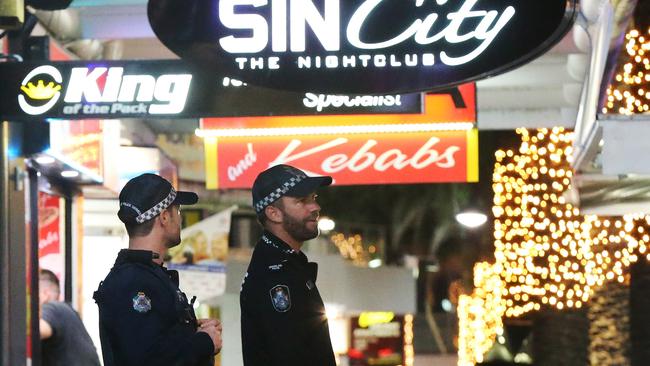
But it gets worse — police are being required to undertake up to six medical transports in a shift or babysit injured people, due to ambulances failing to turn up.
This is on top of border patrols and managing hotel quarantine and the airport.
A senior police source said: “It’s become dysfunctional. We have lost focus on core business. We have become support aids for health workers. This is not what we signed up for.”
Another source, close to the police beat, said: “There simply isn’t enough police left to keep the community safe. Juvenile crime is out of control and not being dealt with due to severe staff shortages.
“The community are not being provided with acceptable service. Calls for service are not being attended and response times are at an all time low. Police are tired and fatigued and are at breaking point.”
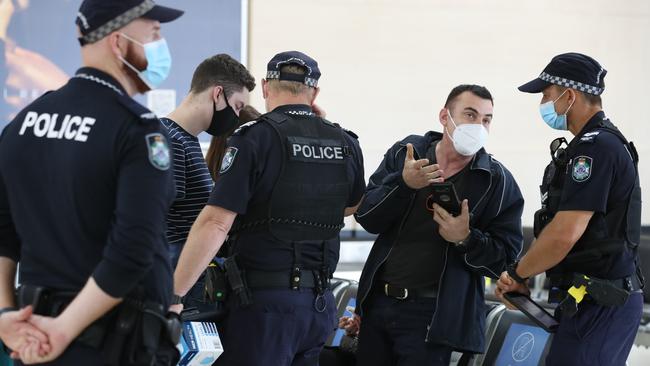
The Bulletin can reveal:
* 80 Coast police were off sick last Friday, while officers conducted six transports because ambulances were not available.
* The number of sick police dropped to 51 on Saturday with one transport, then increased to 59 and three transports on the Sunday. Monday saw 79 officers off sick while police undertook three transports.
* Police attended to eight QAS jobs between around 10.30pm on Monday and 6am on Tuesday, including a woman who sustained a head injury and was bleeding after a fall. Police waited on scene for 90 minutes before the injured woman left.
* Later on Monday night a man who was injured in a pub fight was taken to hospital by friends after paramedics failed to show up. Police waited for 50 minutes.
* Police then stayed with a woman who attempted to take her own life — waiting for 90 minutes — before paramedics arrived. She had cut herself and told police she had swallowed button batteries.
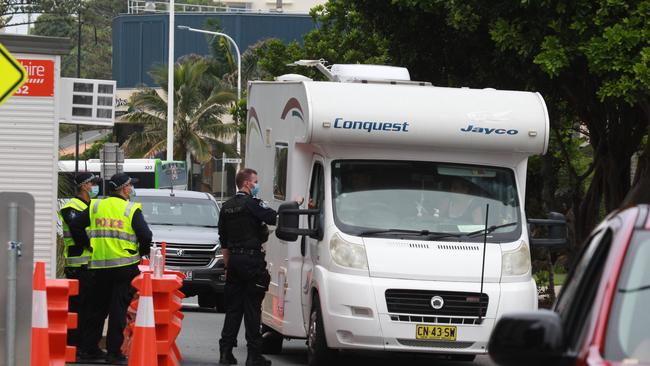
A police source said the numbers of police away from work was much higher than the sick leave figures.
“Numerous police are suspended due to not being vaccinated as well as police in quarantine. Numerous police are still on the border, hotels and airport. There simply isn’t enough police left to keep the community safe,” the source said.
On Thursday the State Government announced the border barricades would be removed on 1am Saturday.
“We need our domestic borders to be open so police can return to the frontline,” Premier Annastacia Palaszczuk said.
The Queensland Police Service did not respond to the figures but in a statement said a borderless model of policing has been implemented “making our workforce more agile and adaptable and not restricted by traditional policing boundaries”.
“With more than 1000 staff in the Gold Coast District and additional officers from other areas of Queensland performing local COVID-19 duties, the district is adequately managing the number of staff away due to illness,” the police spokesperson said.
“Local police will continue to monitor and review resources across each area to ensure our ability to respond to urgent matters is not compromised.
“More than 98 per cent of officers in the Gold Coast District have been vaccinated and any operational impacts relating to officers being suspended due to the Commissioner’s Direction are negligible.”
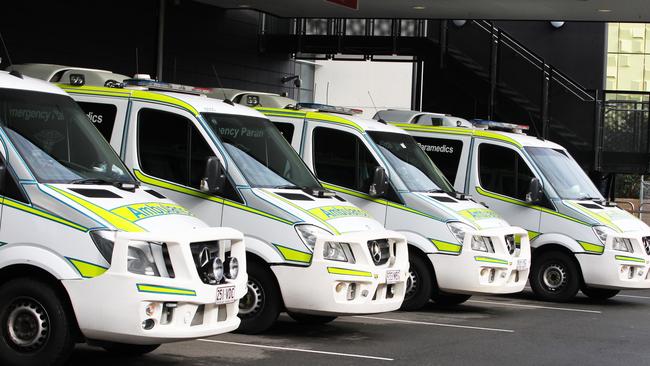
The police spokesperson said police “from time to time” transport individuals to hospital and other health facilities on a risk-based approach.
“These matters usually relate to mental health illnesses, especially where the individual may become violent. A Memorandum of Understanding exists with the Queensland
Ambulance Service in relation to the agencies working collaboratively for the safe resolution of mental health incidents,” the spokesperson said.
The Bulletin in early December warned police would be stretched after no longer having the support of armed forces at the border gates.
The latest available data on ramping at Coast hospitals also shows how the system progressively started to fail last year — wait times for ambulances in just a few months began to double.
Data provided by the state government to Opposition health spokesperson Ros Bates through Questions on Notice in Parliament track how the system on the Coast was progressively failing.
QAS response times for triple-0 calls for Code 1 and 2 cases — showing the worst delays — have increased from 4.6 hours in June 2020 to 8.1 hours in November last year.
Patients off stretcher times, between July and September last year, ranged from a low of only 51 per cent of clients to about 56 per cent at Gold Coast University and Robina hospitals.
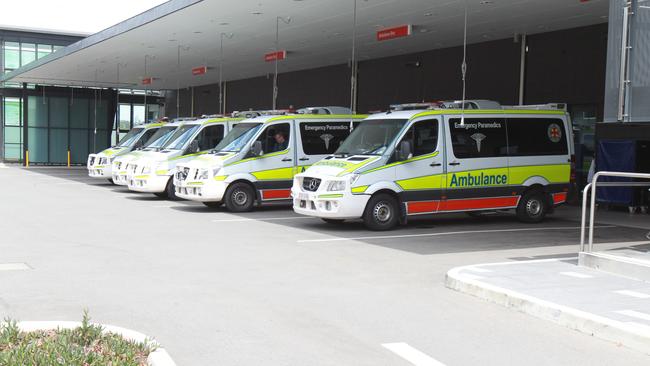
The Bulletin asked QAS how many of its staff are employed in the Coast district, how many were off sick or unable to work due to being unvaccinated.
The QAS was asked how it was responding to the crisis where police were picking up its patients, and what advice it had residents and tourists requiring an ambulance.
QAS declined to respond in specifics or discuss recent cases.
In a statement, a QAS spokesperson said: “The QAS always endeavours to provide the quickest possible response to patients in the community. The planning, management and deployment of ambulance resources is structured to support this and ensure patients get a timely response, relevant to their clinical presentation.
“The most critical patients, experiencing an imminent life-threatening emergency, are prioritised above all else and receive an immediate and appropriate response.
“The QAS works collaboratively with other agencies when responding to patients, and has local interagency agreements in place, including with the Queensland Police Service, to co-ordinate the safest, most appropriate and timely form of transport for a patient to the nearest clinically appropriate hospital or health care facility on a case-by-case basis.
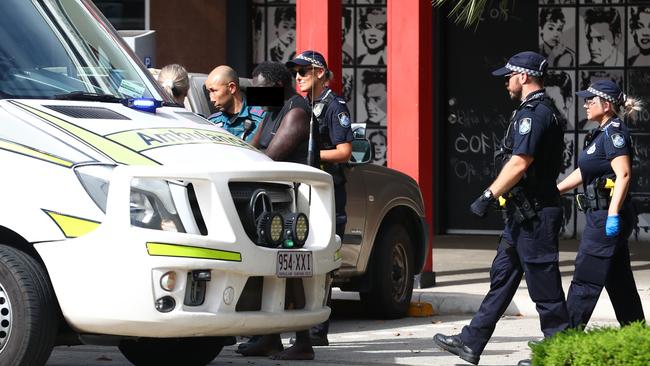
“In times of demand surge, less time critical patients are regularly contacted by clinical health professionals, including senior paramedics and doctors, to confirm the patient’s clinical condition and are upgraded to a faster response if required.
“Where this occurs, the clinician may provide clinical advice for self-care or referral to alternative care which does not require an ambulance response or transport.”
QAS admitted the Covid-19 health pandemic had placed increased demands including furloughed staff on the QAS and the broader health system.
“This is being experienced by all ambulance services across the country and during these periods, some patients with lower acuity presentations may be required to wait longer than those prioritised as more urgent,” QAS said.
Originally published as Safety alert: More than 100 cops on sick leave as officers work 18-hour shifts


